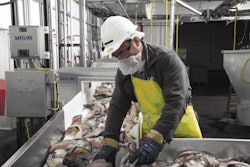Here's an experiment to try: Type "petfood" in a Google search and see how many results you get. (I got more than 66 million in mid-January.)
Besides websites selling petfood, many of these links lead to sites and blogs with "information" on pet nutrition and your products. A large number seem to have sprung up in reaction to the 2007 US recalls, so much of the content is based on emotion and a new sense of activism among pet owners. While such involvement is generally positive, it is not necessarily a reliable base for sound information on pet nutrition.
Now just imagine how many pet owners each day perform this same online search. We would like to hope that's not the only way they seek information on petfood; ideally they're talking with their veterinarians and reading well-researched publications as well as product labels and materials you disseminate.
But let's face it, for some pet owners, the Internet is their main-and sometimes only-source of information. That's pretty scary, isn't it?
Online "awards"
Case in point: In early January a website called NaturalNews.com posted a commentary entitled, " The 2008 Biggest Stupid Act in Pet Food Award ". The author, Susan Thixton, bestowed her award on several lucky recipients, including:
- The US Food and Drug Administration (FDA), multiple times, for acts such as the petfood safety meeting it held in May 2008 (" ... a complete waste of time and taxpayer money," Thixton wrote), allowing "federal law to be violated" and not informing US consumers of Chinese imported foods or ingredients;
- US Congress-Thixton essentially said it aided and abetted FDA; and
- A couple industry experts who actually have the knowledge to write and talk credibly about petfood but whose insights Thixton didn't agree with.
You may have come across Thixton's website, the not-so-subtly named www.truthaboutpetfood.com. She wrote a book with the same name in 2006 that, according to NaturalNews.com , is being updated. Neither this site nor her own includes any information about her education, training or work experience.
But whatever her qualifications may be, the fact is, she has a presence online and quite likely a following. And she's not alone; there are plenty of other sites and articles like this-and that's what many pet owners find online.
What can you do?
Fighting misinformation means offering factual, impartial information:
- Make sure your own company's website offers as much non-promotional, science-based yet layman-friendly information about your products as you can provide;
- Even better, include information or testimonials from credible third-party sources;
- Consider partnering with organizations such as the Pet Food Institute in the US or other petfood companies to offer non-biased, science-based information;
- Reach out to bloggers and other people writing about pet nutrition.
The last item is the riskiest. With some bloggers and writers who consider themselves activists and our industry the enemy, it could backfire. But some people writing online do have a background in pet nutrition and are eager to expand it. Some might welcome your input and want to make their blog or site more objective by including information from a variety of sources, including your company. Try to find an "about the author" page on the site, and look for authors with documented experience or published work as journalists, veterinarians, nutritionists or scientists.
Possibly the worst thing you could do is nothing. Ignoring misinformation won't make it go away.





.png?auto=format%2Ccompress&fit=crop&h=167&q=70&w=250)
.png?auto=format%2Ccompress&fit=crop&h=167&q=70&w=250)











